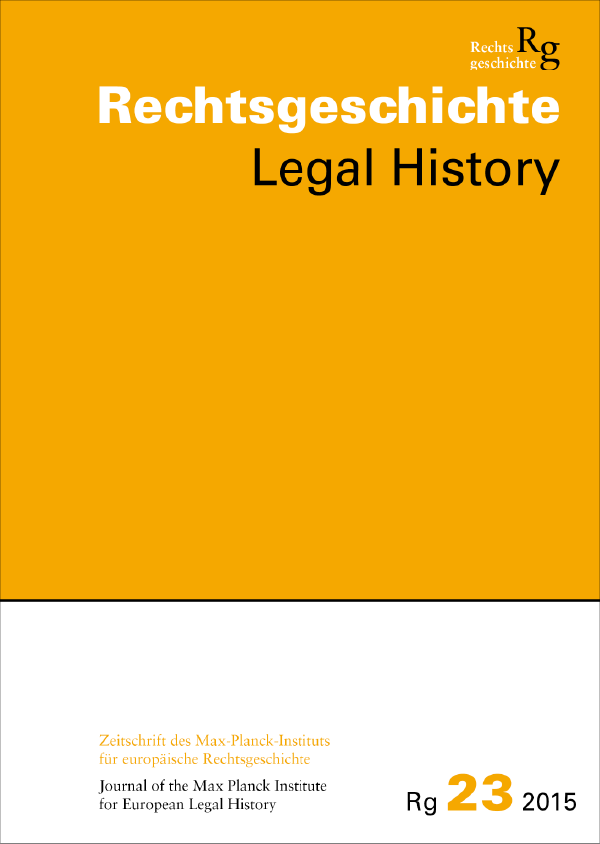Die Verfassung der Berliner Republik
Verfassungsrecht und Verfassungsrechtswissenschaft in zeitgeschichtlicher Perspektive
DOI:
https://doi.org/10.12946/rg23/016-051Abstract
Contemporary constitutional history faces a methodological dilemma: Historiography traditionally calls for scientific dissociation, both temporal and individual, from its objects of research. Yet, changes in constitutional normativity are typically of an incremental nature and can best be studied through a close approach of the contemporaries. Given such a dilemma, this essay undertakes to analyze key features of constitutional law and science of the »Berlin Republic«. Its main thesis is that contemporary constitutional history in Germany can be seen as a »farewell to the interim«, which the »Bonn Republic« can be construed to have been.
Several leitmotifs can be identified: The concept of constitutional identity gains attention and influences the discourses implicitly and explicitly. Among them are debates about the scope of constitutional rights (human dignity, freedom of speech) as well as about the structure of the democratic and federal polity. Simultaneously, social change gives rise to fundamental constitutional questions such as religious pluralism or same-sex marriage.
At the same time, the science of German public law, both within the dimensions of constitutional and administrative law, undergoes a profound process of self-ascertainment. This process brings about a renaissance of fundamental research in the fields of constitutionalism and theory of state.
Downloads
Veröffentlicht
Zitationsvorschlag
Ausgabe
Rubrik
Lizenz
Copyright (c) 2015 Autor/in

Dieses Werk steht unter einer Creative Commons Namensnennung - Nicht-kommerziell - Keine Bearbeitung 3.0 International -Lizenz.





